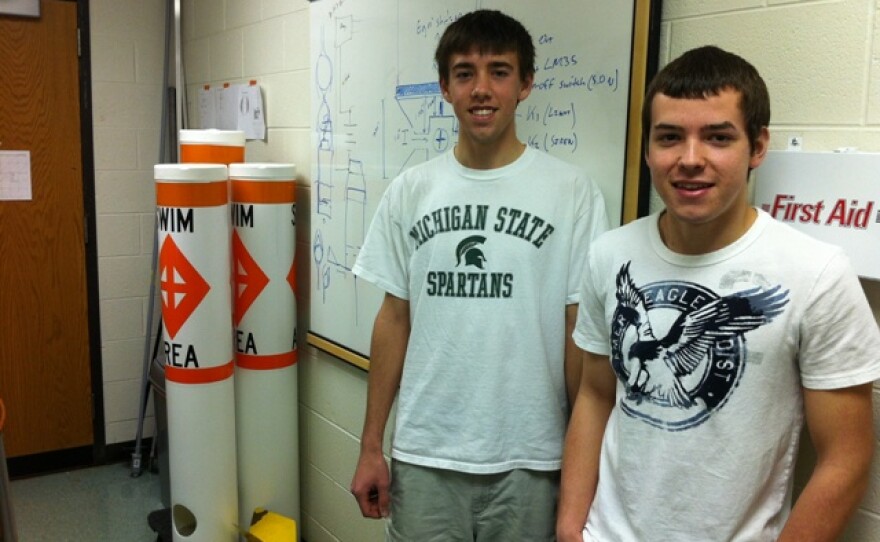A team of students at Williamston High School has been working on an invention that they hope will prevent drownings in the Great Lakes.
Funding for the project came from a Lemelson–MIT grant.
In the process, they’re learning about engineering and business.
http://youtu.be/IMp0UyW8C-o
The road from the Massachusetts Institute of Technology to Williamston was paved in 2003 with a pilot program designed to foster a passion for innovation in high school students. Since then, the Lemelson-MIT InvenTeam Initiative has grown. It now hands out $10,000 grants to 16 high schools across America every year. This year, Williamston is the only school in Michigan to earn one of the grants.



